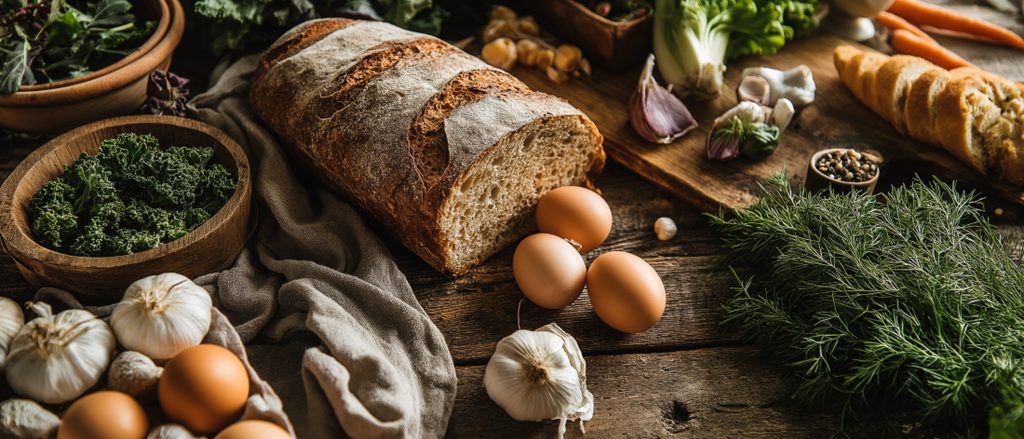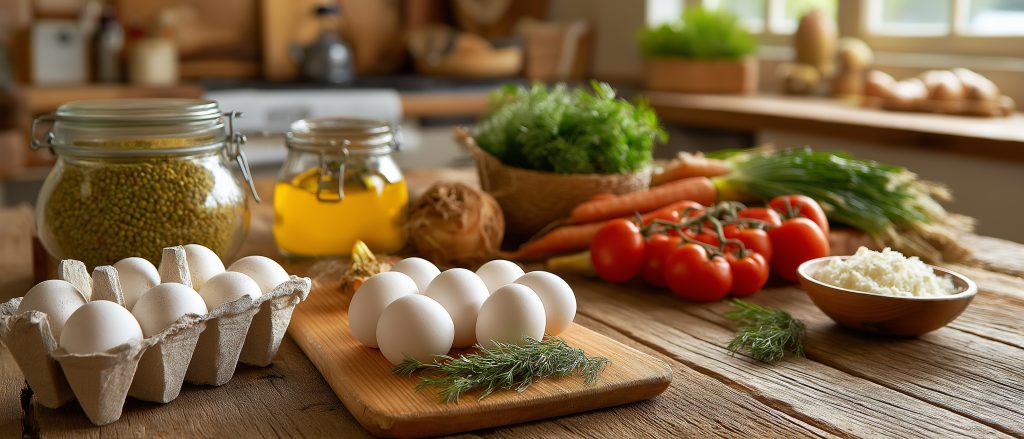
Cottage Food Law California: Your Complete Guide to Food Safety Training & Compliance
Turning your homemade treats into a thriving business sounds like a dream. And in California, it’s possible under the state’s cottage food program. But before you start selling your famous cookies or jams, it’s important to understand how the cottage food law California works, including the mandatory food safety training requirements.
This guide breaks down everything you need to know, from what foods you can sell to labeling rules and certification steps. This can help you confidently launch your home-based food business and stay compliant.
What is the Cottage Food Law California and Why Does It Exist?

The cottage food safety guidelines in California allows individuals to prepare and sell certain low-risk foods made in their home kitchens. It was designed to help small-scale entrepreneurs and hobbyists earn income without needing a commercial kitchen, as long as they meet safety and labeling standards.
This law is part of the California Health and Safety Code, which sets the ground rules for Cottage Food Operations (CFOs). The goal is to make it easier for Californians to start small food businesses while ensuring that the food reaching consumers remains safe.
The California Department of Public Health (CDPH) keeps an updated Approved Cottage Foods List, which outlines what foods are legally allowed for sale. Always check this list before introducing new products; compliance starts here.
s
What are Class A and Class B Cottage Food Operations?
California recognizes two types of cottage food operations:
- Class A CFOs: These businesses sell directly to consumers, for example, from your home, through local deliveries, online orders, or at farmers’ markets.
- Class B CFOs: These allow both direct and indirect sales. That means you can sell your products to retail stores, restaurants, or coffee shops, which then sell them to customers.
While both must follow the same sanitation, labeling, and training standards, Class B operations require a permit and kitchen inspection by your local health department.
Who Needs Food Safety Training Under the California Cottage Food Safety Guidlines?
Food safety training isn’t just recommended, it’s required for all cottage food operators in California.
State law mandates that every cottage food operator complete a “food processor course” within three months of receiving registration or permitting from their local health department. This certification must then be renewed every three years to remain valid.
To fulfill this requirement, you can complete an ANSI National Accreditation Board (ANAB)-accredited course, such as the one offered by AAA Food Handler.
What the Training Covers:
- Personal hygiene and safe food handling
- Preventing cross-contamination
- Cleaning and sanitizing food-contact surfaces
- Allergen management and labeling
- Preventing foodborne illness
Even though most cottage foods are shelf-stable, this training helps ensure your operation follows the same high standards as any professional kitchen.
What Foods Can You Sell Under Cottage Food Safety Guidelines California?
Only certain foods that don’t require refrigeration or time-temperature control are approved for home production. These are considered “low-risk” because they don’t support rapid bacterial growth.
Here are examples of approved cottage foods in California:
- Baked food items with no cream, custard, or meat fillings in them
- Candies, chocolates, and confections
- Dried herbs, teas, and spice mixes
- Fruit jams, jellies, and butters (specific types)
- Honey, syrups, and flavored sugars
- Nuts, nut mixes, and nut butters
- Frostings and fondants without dairy
- Powdered drink mixes

Foods not allowed include meat, dairy, cream cheese frosting, salsas, or anything requiring refrigeration.
If you’re unsure whether your product qualifies, review the CDPH Approved Cottage Foods List before you begin production.
Labeling Rules for Cottage Food in California
Proper labeling is a legal requirement for all cottage food products in California. Each label must include:
- The product name
- The business name, city, and ZIP code
- Your permit or registration number and county name
- A list of ingredients in descending order by weight
- A declaration of allergens (e.g., Contains: Milk, Eggs, Wheat)
- The phrase “Made in a Home Kitchen” (or “Repackaged in a Home Kitchen”) in 12-point type
- The net weight or volume in both U.S. and metric units
If your business address isn’t listed publicly, you must include the full street address.
Nutrition labels aren’t required unless you make a health or nutrient content claim (like “low fat” or “high in fiber”).
If you advertise online or on social media, you must also display your registration number, county name, and the statement “Made in a Home Kitchen.”
Why Food Safety Training is a Smart Business Move
While training is required by law, it also gives you a major business advantage.
- Builds customer trust: Shoppers feel confident buying from certified operators.
- Expands opportunities: Some farmers’ markets and retail stores require proof of training.
- Reduces risk: Minimizes foodborne illness or liability claims.
May lower insurance costs: Some providers offer discounts for certified businesses.
In short, getting trained is not just for compliance; it’s about professionalism, credibility, and long-term success.
Common Mistakes to Avoid as a Cottage Food Operator

While working as a cottage food operator in California, you must make sure to avoid certain mistakes to run your business smoothly and keep your customers safe. Some of these are:
- Missing the 3-month training deadline or the 3-year renewal window
- Selling foods not listed on the approved list
- Mislabeling or forgetting allergen statements
- Ignoring hygiene or sanitation standards
Not keeping a copy of your certificate handy
AAA Food Handler – Your Trusted Food Safety Partner
Starting a food business from home is exciting, but staying compliant is crucial. AAA Food Handler makes it easy to meet your training requirements under the cottage food safety guidelines of California.
Their ANAB-accredited Food Handler Course is 100% online, recognized statewide, and takes less than 90 minutes to complete. Whether you’re just starting or renewing your certification, AAA Food Handler provides a fast, affordable, and guaranteed path to compliance.
With food safety certification, protect your customers, grow your business, and turn your homemade passion into a safe and successful venture!
